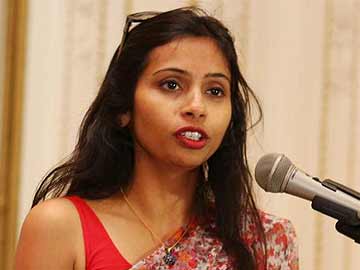 New Delhi, Jan 8: In further retaliatory steps over the arrest of diplomat Devyani Khobragade, India has asked the US to "discontinue" commercial activities being undertaken from its embassy premises in New Delhi by January 16.
New Delhi, Jan 8: In further retaliatory steps over the arrest of diplomat Devyani Khobragade, India has asked the US to "discontinue" commercial activities being undertaken from its embassy premises in New Delhi by January 16.
India's action comes ahead of the January 13 deadline for the indictment in New York of Khobragade, deputy consul general in New York, on visa fraud charges.
Acting tough, the government has asked the embassy to stop commercial activities undertaken under the aegis of the American Community Support Association (ACSA), including restaurant/bar, video club, bowling alley, swimming pool, sports field, beauty parlour and gym.
The US has also been asked to provide the tax returns filed by it with Indian authorities for commercial activities which are afforded through ACSA to non-diplomatic persons, including private American citizens and their families, government sources said.
Indian authorities have cited the provision of such commercial facilities to non-diplomats as a violation of Article 41(3) of the Vienna Convention on Diplomatic Relations 1961.
The convention states that "the premises of the mission must not be used in any manner incompatible with the functions of the mission as laid down in the present convention or by other rules of general international law or by any special agreements in force between the sending and the receiving State."
It is also understood the US diplomatic vehicles will now attract penalties for all traffic-related offences such as unauthorized parking, red light jumping, dangerous driving, etc.
Necessary action against Vehicles with AF (Applied for) number plates is also on the cards.





Comments
Add new comment